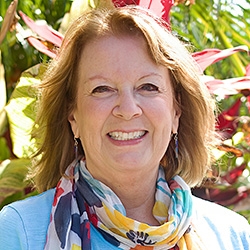

NVC Resources on Connection
-
Deepen your connection to life, nurture inner healing, and live more compassionately.
-
Judgment is an attempt to protect from hopelessness or insecurity, at high cost. Instead, check in with fear, grief, or hurt. Then wonder what needs are at stake for everyone. This makes space for grief instead of anger, for negotiation rather than control, and for "calling in" rather than excluding. Wonder: “For whom would this be life-serving or not?”, “What strategies would care for all needs?” or, “What can I contribute now?”
-
In a workshop, a hesitant white neurodivergent man faced a triggering reaction from a Global Majority transgender man. Uncovering their backgrounds, the facilitator addressed family dynamics and exclusion. A repair exercise fostered empathy, challenging assumptions and emphasizing the importance of equitable facilitation for a richer group experience.
-
Read how an American Buddhist NVC teacher with Jewish roots reflects on how any dehumanization in the Israel-Hamas conflict can be used to justify all kinds of violence that can escalate for generations. With acknowledgment of the complexities, his desire is for us to bring in respect, dignity and peace -- for both Israelis and Palestinians. He emphasizes compassionate advocacy of all humanity amid the ongoing crisis.
-
Awaken your soul force and live from compassion and clarity while grounded in human needs.
-
Distinguishing between needs and strategies to meet needs is crucial for solving conflict. For example, the need for peace can be met through various strategies beyond solitude or gratitude. Similarly, sex is a strategy. Sexual expression is the need behind it, and can be met in various ways to meet that need without having sex itself. Such flexibility can foster creativity and deeper connection, enhancing relationships.
-
These mindful inquiry exercises and tips are for enhancing self-empathy, and empathy for others. Using emotions and needs card decks provided, learn to reflect and enhance trust and connection through intentional practice.
-
No one likes demands. Do you want to have access to choice when requests or demands come your way? Join CNVC Certified Trainer Arnina Kashtan as she provides tools to free yourself from the submit/rebel dynamic.
-
Trainer Tip: In Nonviolent Communication, we consider love to be a need. Remember that needs are universal; everyone has the same ones. We all need love, but the ways in which we express it can be very different.
-
Some people in the NVC community consider the words "privilege" and "power" triggering and/or evaluative. From this perspective, how can the concepts of "privilege" and "power" be considered part of the NVC teaching? This writing piece examines the power and privilege debate. It also discusses what the author sees as Marshall Rosenberg and Gandhi's stance on the subject...











